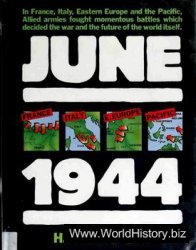Nevertheless, grave constitutional questions arose as a result of the acquisitions that followed the Spanish-American War. McKinley acted with remarkable independence in handling the problems involved in expansion. He set up military governments in Cuba, Puerto Rico, and the Philippines without specific congressional authority. The Supreme Court, in what became known as the “insular cases,” granted Congress permission to act toward the colonies much as it pleased. A colony, one dissenting justice
The Platt Amendment at
Said, could be kept “like a disembodied shade, in an indeterminate state of ambiguous existence for an indefinite period.”
While the most heated arguments raged over Philippine policy, the most difficult colonial problems concerned the relationship between the United States and Cuba. Despite the desire of most Americans to get out of Cuba, an independent government could not easily be created.
The insurgent government was feeble, corrupt, and oligarchic, the Cuban economy in a state of collapse, and life was chaotic. The first Americans entering Havana found the streets littered with garbage and the corpses of horses and dogs. All public services were at a standstill; it seemed essential for the United States, as McKinley said, to give “aid and direction” until “tranquillity” could be restored.
When McKinley established a military government for Cuba late in 1898, it was soon embroiled with local leaders. Then an eager horde of American promoters descended on Cuba in search of profitable franchises and concessions. Congress put a stop to this exploitation by forbidding all such grants as long as the occupation continued.
The problems were indeed knotty, for no strong local leader capable of uniting Cuba appeared. Even Senator Teller, father of the Teller Amendment, expressed concern lest “unstable and unsafe” elements gain control of the country. European leaders expected that the United States would eventually annex Cuba; and many Americans, including General Leonard Wood, who became military governor in December 1899, considered this the best solution. The desperate state of the people, the heavy economic stake of Americans in the region, and its strategic importance militated against withdrawal.
In the end the United States did withdraw, after doing a great deal to modernize sugar production, improve sanitary conditions, establish schools, and restore orderly administration. In November 1900 a Cuban constitutional convention met at Havana and proceeded without substantial American interference or direction to draft a frame of government. The chief restrictions imposed by this document on Cuba’s freedom concerned foreign relations; at the insistence of the United States, it authorized American intervention whenever necessary “for the preservation of Cuban independence” and “the maintenance of a government adequate for the protection of life, property, and individual liberty.” Cuba had to promise to make no treaty with a foreign power compromising its independence and to grant naval bases on its soil to the United States.
The Cubans, after some grumbling, accepted this arrangement, known as the Platt Amendment. It had the support of most American opponents of imperialism. The amendment was a true compromise: It safeguarded American interests while granting to the Cubans real self-government on internal matters. In May 1902 the United States turned over the reins of government to the new republic. The next year the two countries signed a reciprocity treaty tightening the economic bonds between them.
True friendship did not result. Although American troops occupied Cuba only once more, in 1906, and then at the specific request of Cuban authorities, the United States repeatedly used the threat of intervention to coerce the Cuban government. American economic penetration proceeded rapidly and without regard for the well-being of the Cuban peasants, many of whom lived in a state of peonage on great sugar plantations. Nor did the Americans’ good intentions make up for their tendency to consider themselves innately superior to the Cubans and to overlook the fact that Cubans did not always wish to adopt American customs and culture.




 World History
World History









